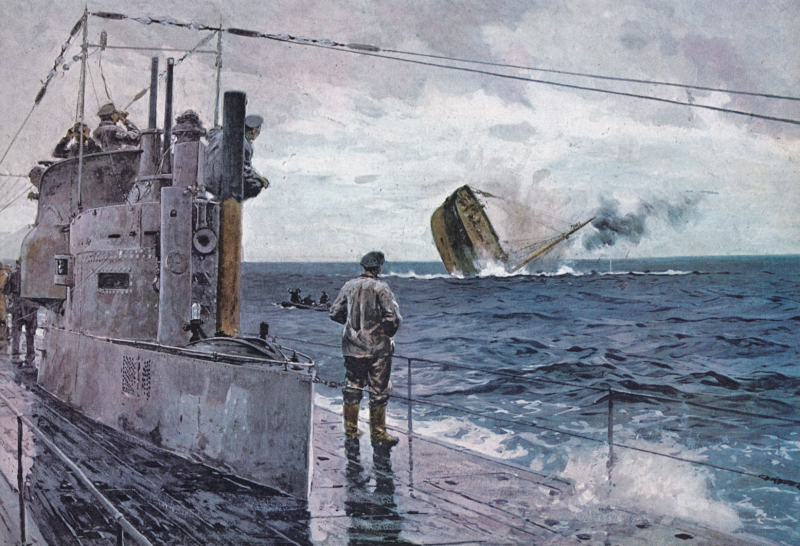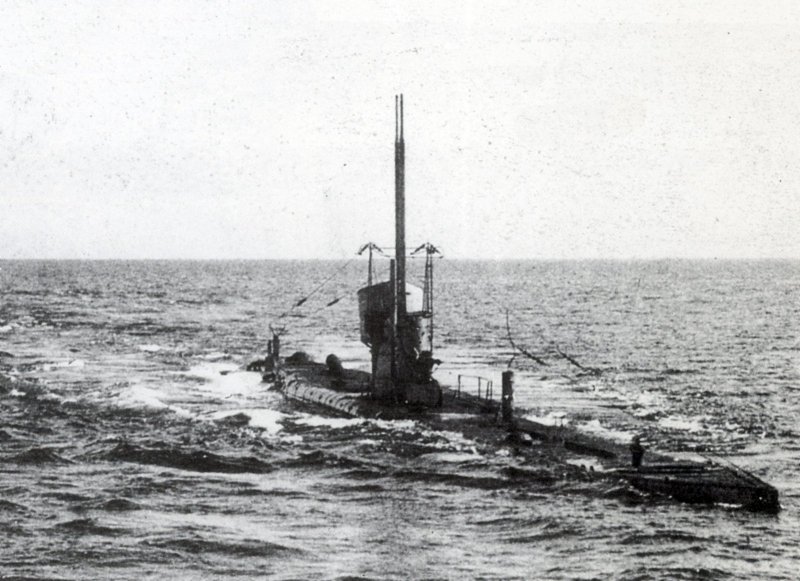The seas of the United Kingdom were no longer safe
One of the interesting facts about Lusitania and its 1915 sinking is that the seas of the United Kingdom were no longer safe. By early 1915, a new menace had emerged: submarines. Initially, they were exclusively utilized by the Germans to target naval vessels, which they did relatively seldom but with spectacular success. The U-boats then began to target commerce vessels on occasion, almost invariably in conformity with the old Cruiser Rules. As a result of the British declaration of the North Sea as a war zone in November 1914, the German government decided to push up their submarine campaign in order to obtain an advantage on the Atlantic. Germany declared the seas surrounding the United Kingdom and Ireland a war zone on 4 February 1915, declaring that Allied ships in the area would be sunk without warning beginning on 18 February. This was not wholly unfettered submarine warfare, as precautions were taken to avoid sinking neutral ships.
A German U-boat sank the Lusitania 11 miles (18 km) off the southern coast of Ireland, inside the proclaimed war zone, on the afternoon of May 7. The German government justified treating the Lusitania as a naval vessel since she carried 173 tons of war armaments and ammunition, making her a valid military target, and they claimed that British commerce ships had broken cruiser rules from the start of the war. By 1915, the globally recognized cruiser regulations had become obsolete; with the advent of Q-ships by the Royal Navy 1915, which were armed with disguised deck guns, it had become more perilous for submarines to surface and give warning. The Germans claimed that the Lusitania was frequently transporting "war munitions" that she was under Admiralty control, that she could be turned into an armed auxiliary cruiser to join the war, and that her identity had been concealed, and that she flew no flags. They claimed she was a non-neutral vessel operating in a designated war zone, with orders to avoid capture and ram submarines.
There has long been a theory, expressed by historian and former British naval intelligence officer Patrick Beesly, as well as authors Colin Simpson and Donald E. Schmidt, that the British authorities deliberately put the Lusitania in danger in order to entice a U-boat attack and thus drag the US into the war on Britain's side. Winston Churchill wrote to Walter Runciman, President of the Board of Trade, a week before the sinking of the Lusitania, arguing that it is very important to attract neutral shipping to our shores, in the hope especially of embroiling the United States with Germany.










